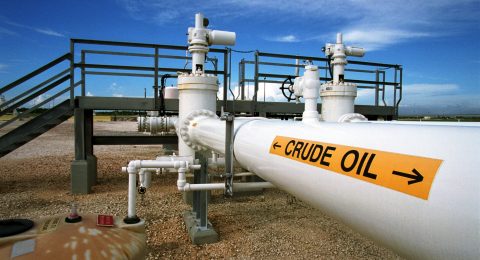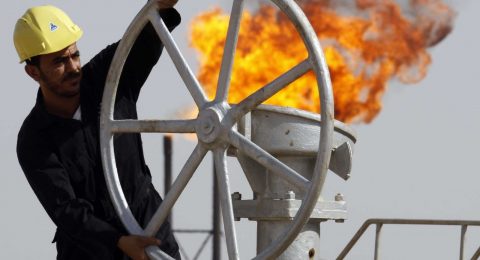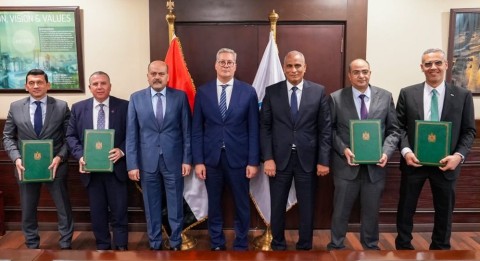Egypt’s oil and gas sector managed to implement a number of new projects in the petrochemicals industry and execute an expansion strategy for infrastructure, in addition to following a plan to accelerate the delivery of natural gas to households, according to a press release.
This was mentioned in a report received by the Minister of Petroleum and Mineral Resources, Tarek El Molla, stating the achievements made in the petrochemicals industry and in infrastructure in July-September of the current fiscal year (FY) 2019/20.
According to the report, the trial operation of the Hydrogen Cracking of Mazut Complex at the Egyptian Refining Company (ERC) was commenced, with investments of around $4.3 million. The mazut is projected to produce around 2.3 million tons of diesel per year, 522,000 tons of reformate per year, 79,000 tons of butane per year, 599,000 yearly tons of jet fuels, 366,000 yearly tons of naphtha, 96,000 tons of sulfur per year, and 453,000 tons of coal per year.
When it comes to transportation, distribution, and infrastructure projects, 50 filling and services stations began operations across the Egyptian governorates, in addition to settling down all issues related to two other stations. Moreover, three distribution centers for butane cylinders were opened in Kafr El Sheikh, El Sharqiya, and El Behera, bringing the total number of butane cylinders centers to 3,052.
Additionally, the South Helwan-Byad El Arab mazut pipeline was completed in July at a length of 18 kilometers (km), a diameter of 16 inches (in), and at a cost of around EGP 65 million. Moreover, El Mahala-Shawa Petroleum products pipeline was completed in August at a length of 35 km, a diameter of 10 in, and a cost of around EGP 107 million. El Tina-New Capital pipeline was finalized in July at a length of 165 km, a diameter of 42 in, and with a total cost of EGP 3.3 billion.
Furthermore, four new diesel and butane tankers commenced operations in Suez Oil Processing Company, with a capacity of around 45,000 cubic meters and at a cost of EGP 70 million.
For the natural gas delivery projects, natural gas was delivered to around 305,500 housing units, bringing the number of households connected to the natural gas grid to 10.4 million. Additionally, natural gas was delivered to 178 commercial consumers and three factories, and 4,613 cars were converted to run on natural gas, reaching a total of 288,400 converted cars.
The local consumption of natural gas and petroleum products declined by 5.2%, compared to the same period a year before, recording around 19.6 million tons.
The consumption of petroleum products decreased by 5.7% compared to the same period a year before, reaching 7.5 million tons. Octane-80 consumption declined by 9.5%, while the consumption of Octane-92 increased by 4% and Octane-95 by 74%. Moreover, the consumption of diesel dropped by 3.5% because of a decline in its usage in the electricity sector, and mazut declined by 19%.
The consumption of natural gas represents around 63% of the total local consumption, yet it declined by 4.9% compared to the same period a year before. This is due to the drop in natural gas consumption in power stations by 6%.
When it comes to the trade balance, the export value of crude oil, liquefied natural gas (LNG), and petroleum and petrochemical products recorded around $2.42 billion, compared to $2.87 billion. Despite exports increasing by 2.1%, its value dropped by 15.7% because of the decline in the international prices of some products.
On the other hand, the import value of crude oil and petroleum products reached $2.7 billion, with a decline of around 13%, despite the increase in imported quantities by 0.4%. This is due to the decline in the international prices of some products.











